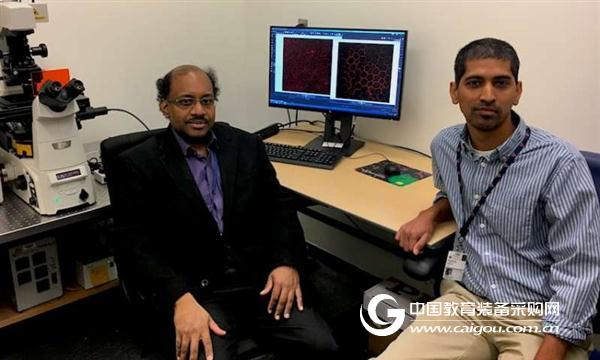New findings are expected to break the deadlock in macular degeneration
Guide Macular degeneration is the leading cause of vision loss in the elderly, with nearly 200 million patients worldwide. In recent years, trials to explore new treatments for macular degeneration have also entered a dead end, and the seriousness of the problem is self-evident. A study published in the November 27 issue of the journal Nature Medicine is expected to break the deadlock and protect patients from blindness. Jayakrishna Ambati (left) and Nagaraj Kerur Pull out the culprit Researchers at the University of Virginia School (UVA) Medical School have taken an important step in the fight against macular degeneration. They discovered a deadly inflammation that eventually took away the sight of millions of people. Dr. Jayakrishna Ambati, vice chairman of the UVA Eye Institute and founder of the UVA Advanced Vision Science Center, said that if macular degeneration is a country, it will be the eighth most populous country in the world. This is a very serious problem. Ambati and assistant professor Dr. Nagaraj Kerur and their laboratories have determined that the culprit of macular degeneration is an enzyme called cGAS. This enzyme usually plays an important role in the body's immune response to infection. The researchers did not think of the role of this molecule in macular degeneration. According to Ambati, as far as we know, macular degeneration is not related to viruses or bacteria. But in the process, cGAS was activated and the "alarm system" was turned on, which is very surprising. This causes retinal cell death, which ultimately leads to loss of vision. The researchers point out that cGAS may not only be an alarm for pathogens, but may also be an alarm for other harmful problems that respond to the immune system. Develop new treatments cGAS, an enzyme that may also play an important role in diseases such as diabetes, lupus, and obesity, has been working to develop drugs that inhibit its function. “Because the goal we are talking about is an enzyme, we can develop small molecules that can stop it,†Kerur said. “There are already many drugs for specific enzymes on the market, such as statins used to lower cholesterol levels. †This promising new clue is great news for researchers who are expected to develop new treatments for macular degeneration. According to UVA researchers, this can take years, as the drug goes through extensive clinical trials to determine its safety and efficacy against macular degeneration. Ambati said that he is very optimistic. "This is a precise drug at the single molecule level." Researchers also hope to develop a method to detect enzyme levels in the patient's eye so they can decide when to use a treatment that inhibits cGAS. "If they have high concentrations of this enzyme in their eyes, they may be the perfect candidate for this treatment." Shanghai Chuangsai Technology has excellent performance, interleukin cytokines, fetal bovine serum, electrophoresis equipment scientific instruments, raw material drug standards, chemical reagents, cell culture consumables, Shanghai Chuangsai, mass products special promotions, welcome to inquire! Solid Wood Bed ,Solid Wood Bed Frame,Solid Wood Platform Bed,Solid Wood Bunk Beds shandong Changheng Wood Co.,Ltd , https://www.changhengwood.com
